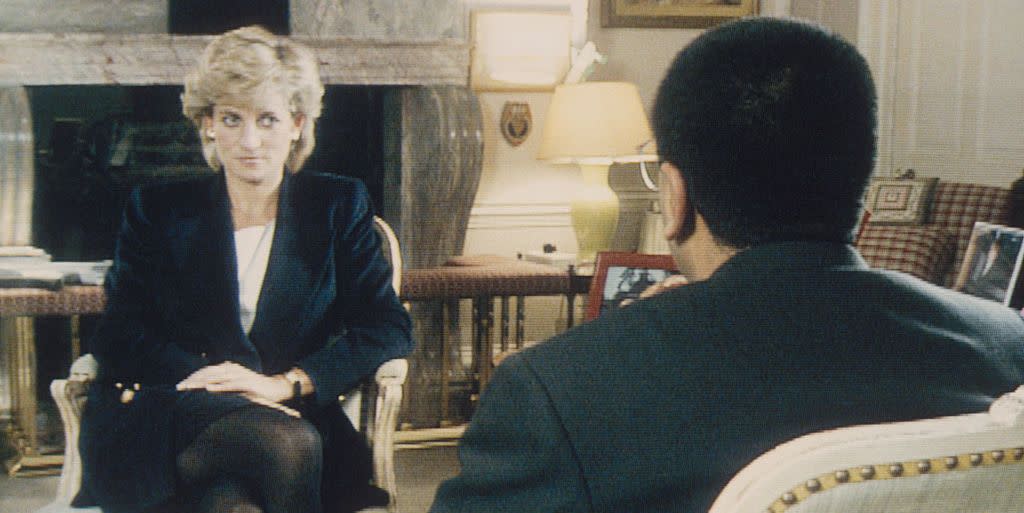Martin Bashir Apologizes to William and Harry But Says He Never Wanted to Harm Princess Diana

- Oops!Something went wrong.Please try again later.
For more than 25 years, Martin Bashir’s interview with Princess Diana has been hailed as a legendary scoop, with her revelations repeated across the world. But following the BBC’s latest investigation and report—which provided a scathing assessment of how the interview was obtained and how concerns at the time were addressed—the narrative around Bashir’s most famous moment has totally changed.
The disgraced journalist was described as a sounding like “broken man” by the Sunday Times newspaper, who secured the first interview with Bashir following the report’s publication last Thursday. The newspaper reported how he said he “never wanted to harm Diana and I don’t believe we did.” He also told the newspaper that he was “deeply sorry” to Princes William and Harry.
The much-anticipated 127-page report by Lord Dyson concluded that Diana’s brother Earl Spencer was “deceived and induced” by Bashir to arrange a meeting with the Princess after being shown fake bank statements. The investigation, which was commissioned following pressure from Earl Spencer when new information came to light last year, also criticized the BBC for failing to investigate properly.
In the aftermath of the report, Princes William and Harry issued separate, strongly-worded statements, with William saying, “It brings indescribable sadness to know that the BBC’s failures contributed significantly to her fear, paranoia and isolation that I remember from those final years with her.” The Prince also said that he thought the deception influenced what his mother said, adding “this Panorama programme holds no legitimacy and should never be aired again.”
A statement on today’s report of The Dyson Investigation pic.twitter.com/uS62CNwiI8
— The Duke and Duchess of Cambridge (@KensingtonRoyal) May 20, 2021
Earl Spencer told a new Panorama investigation aired after the report was published that he draws “a line” between Bashir’s interview and Diana’s death two years later. “She didn’t know who to trust and in the end, when she died two years later, she was without any form of real protection,” he told the program.
Bashir told the Sunday Times that he thought it was “unreasonable and unfair” to suggest that he was singularly responsible for “the tragedy, the difficult relationship between the royal family and the media.” He also insisted that he and Diana were friends, citing how they kept in contact after the interview.
Bashir suffered a spate of health problems since contracting COVID last year. He was the BBC’s religion correspondent from 2016 but has now resigned. Former BBC director-general Lord Tony Hall, who was in charge of the BBC’s initial investigation in 1996 that cleared Bashir of wrongdoing, resigned from his new role as chairman of the National Gallery after Lord Dyson’s report was published.
You Might Also Like

